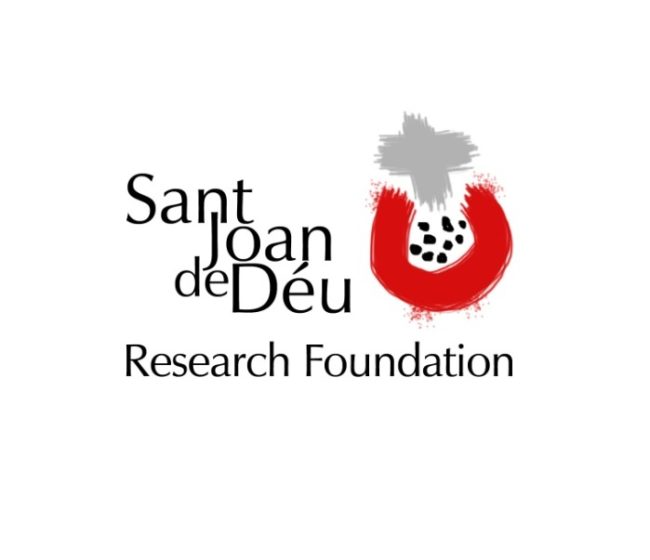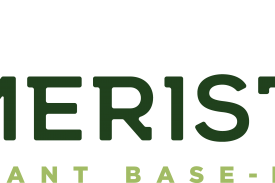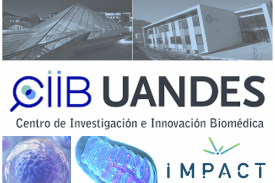
We are currently looking for a highly motivated postdoctoral candidate to apply for «BECAS DE POSTDOCTORADO EN EL EXTRANJERO BECAS CHILE – CONVOCATORIA 2016». The successful candidate will join the group of Neurogenetics and Molecular Medicine (NeuroGene). The group is focused on the research of the molecular basis of central and peripheral nervous system disorders including neurodevelopmental diseases at the Institute of Pediatric Research, Sant Joan de Déu Children’s Hospital (IRP-HSJD) and Sant Joan de Déu Foundation, Barcelona, Spain (http://www.fsjd.org/es), and will work on an research line focusing on the role of ANKK1 biology, and its role in human diseases. The experimental approach comprises genetic and genomic analysis of the patients, cell/molecular biology techniques including in vitro systems and animal models.
NeuroGene is carrying out its scientific work under a clinical translational setting within the Institute of Pediatric Research, aiming to transfer the generated knowledge to the National Healthcare System.
The group strategy is based on three essential aspects of research:
- To make science targeted on a concrete area of knowledge, specifically, the field of neurological and mental disorders.
- To develop the research lines combining the generated knowledge with innovative hypothesis within the context of the “science frontier research”
- To elaborate a translational and innovative biomedical research model within the field of rare diseases based on the research of clinical hypothesis, as well as to implement therapeutic and diagnostic services that serve as clinical translational tools and as connections with bio sanitary industry.
Research lines:
– Genetics and pathophysiology of neuropsychiatric disorders (Parkinson disease, addictive disorders) [PI, Janet Hoenicka, PhD]
– Genetics and pathophysiology of neuromuscular diseases (Charcot-Marie-Tooth neuropathy, Friedreich ataxia) and neurodevelopmental diseases (Menkes disease, intellectual disability) [PI, Francesc Palau, MD, PhD]
Recent references:
- España-Serrano L, Guerra Martín-Palanco N, Montero-Pedrazuela A, Pérez-Santamarina E, Vidal R, García-Consuegra I, Valdizán EM, Pazos A, Palomo T, Jiménez-Arriero MÁ, Guadaño-Ferraz A, Hoenicka J. The Addiction-Related Protein ANKK1 is Differentially Expressed During the Cell Cycle in Neural Precursors. Cereb Cortex. 2016 May 10. pii: bhw129.
- Yubero D, Brandi N, Ormazabal A, Garcia-Cazorla À, Pérez-Dueñas B, Campistol J, Ribes A, Palau F, Artuch R, Armstrong J; Working Group. Targeted Next Generation Sequencing in Patients with Inborn Errors of Metabolism. PLoS One. 2016 May 31;11(5):e0156359.
- Mollá B, Riveiro F, Bolinches-Amorós A, Muñoz-Lasso DC, Palau F, González-Cabo P. Two different pathogenic mechanisms, dying-back axonal neuropathy and pancreatic senescence, are present in the YG8R mouse model of Friedreich ataxia. Dis Model Mech. 2016 Apr 14. pii: dmm.024273.
- Sevilla T, Lupo V, Martínez-Rubio D, Sancho P, Sivera R, Chumillas MJ, García-Romero M, Pascual-Pascual SI, Muelas N, Dopazo J, Vílchez JJ, Palau F, Espinós C. Mutations in the MORC2 gene cause axonal Charcot-Marie-Tooth disease. Brain. 2016 Jan;139(Pt 1):62-72.
- Barneo-Muñoz M, Juárez P, Civera-Tregón A, Yndriago L, Pla-Martin D, Zenker J, Cuevas-Martín C, Estela A, Sánchez-Aragó M, Forteza-Vila J, Cuezva JM, Chrast R, Palau F. Lack of GDAP1 induces neuronal calcium and mitochondrial defects in a knockout mouse model of Charcot-Marie-Tooth neuropathy. PLoS Genet. 2015 Apr 10;11(4):e1005115.
- Ponce G, Quiñones-Lombraña A, Martín-Palanco NG, Rubio-Solsona E, Jiménez-Arriero MÁ, Palomo T, Hoenicka J. The Addiction-Related Gene Ankk1 is Oppositely Regulated by D1R- and D2R-Like Dopamine Receptors. Neurotox Res. 2016 Apr;29(3):345-50.
- Hoenicka J, García-Ruiz PJ, Ponce G, Herranz A, Martínez-Rubio D, Pérez-Santamarina E, Palau F. The addiction-related gene ANKK1 in Parkinsonian patients with impulse control disorder. Neurotox Res. 2015 Apr;27(3):205-8.
- Koeneke A, Ponce G, Hoenicka J, Huertas E. The ANKK1/DRD2 locus is a genòmic substrate for affective priming and recognition of angry faces. Brain Behav. 2015 Oct 14;5(11):e00405.
- Pla-Martín D, Calpena E, Lupo V, Márquez C, Rivas E, Sivera R, Sevilla T, Palau F, Espinós C. Junctophilin-1 is a modifier gene of GDAP1-related Charcot-Marie-Tooth disease. Hum Mol Genet. 2015 Jan 1;24(1):213-29.
- Ivorra JL, Rivero O, Costas J, Iniesta R, Arrojo M, Ramos-Ríos R, Carracedo A, Palomo T, Rodriguez-Jimenez R, Cervilla J, Gutiérrez B, Molina E, Arango C, Alvarez M, Pascual JC, Pérez V, Saiz PA, García-Portilla MP, Bobes J, González-Pinto A, Zorrilla I, Haro JM, Bernardo M, Baca-García E, González JC, Hoenicka J, Moltó MD, Sanjuán J. Replication of previous genome-wide association studies of psychiatric diseases in a large schizophrenia case-control sample from Spain. Schizophr Res. 2014 Oct;159(1):107-13.
- González-Cabo P, Palau F. Mitochondrial pathophysiology in Friedreich’s ataxia. J Neurochem. 2013 Aug;126 Suppl 1:53-64. Review.
- Pla-Martín D, Rueda CB, Estela A, Sánchez-Piris M, González-Sánchez P, Traba J, de la Fuente S, Scorrano L, Renau-Piqueras J, Alvarez J, Satrústegui J, Palau F. Silencing of the Charcot-Marie-Tooth disease-associated gene GDAP1 induces abnormal mitochondrial distribution and affects Ca2+ homeostasis by reducing store-operated Ca2+ entry. Neurobiol Dis. 2013 Jul;55:140-51.
- Garrido E, Palomo T, Ponce G, García-Consuegra I, Jiménez-Arriero MA, Hoenicka J. The ANKK1 protein associated with addictions has nuclear and cytoplasmic localization and shows a differential response of Ala239Thr to apomorphine. Neurotox Res. 2011 Jul;20(1):32-9.
- Huertas E, Ponce G, Koeneke MA, Poch C, España-Serrano L, Palomo T, Jiménez-Arriero MA, Hoenicka J. The D2 dopamine receptor gene variant C957T affects human fear conditioning and aversive priming. Genes Brain Behav. 2010 Feb;9(1):103-9.
- Hoenicka J, Quiñones-Lombraña A, España-Serrano L, Alvira-Botero X, Kremer L, Pérez-González R, Rodríguez-Jiménez R, Jiménez-Arriero MA, Ponce G, Palomo T. The ANKK1 gene associated with addictions is expressed in astroglial cells and upregulated by apomorphine. Biol Psychiatry. 2010 Jan 1;67(1):3-11.
Application details:
Interested candidates, fulfilling the eligible criteria for “BECAS DE POSTDOCTORADO EN EL EXTRANJERO BECAS CHILE – CONVOCATORIA 2016” are strongly advised to submit a covering letter and CV to Janet Hoenicka no later than 7th July 2016.


¿Quieres dejar un comentario ?